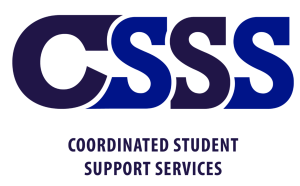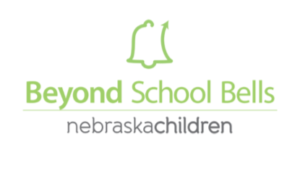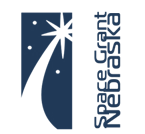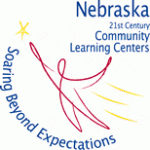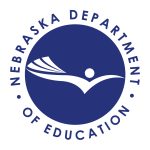
Nebraska BLAST! (Building Lasting Afterschool STEM Teams) is an initiative designed to bring engaging learning opportunities to students who attend Nebraska 21st Century Community Learning Center afterschool and summer programs. The primary goal of Nebraska BLAST! is to partner with statewide, regional, and local organizations to provide professional development for teams of certified teachers and informal educators who then work together to plan and implement student-centered learning opportunities for students after school and in the summer.
Nebraska BLAST! curriculum is now available at the following web address:
https://sites.google.com/a/education.ne.gov/nebraska-blast/home
Frequently Asked Questions About Nebraska BLAST!
Contact
For more information about Nebraska BLAST! please contact:
Kim Larson, Coordinator of Professional Development,
21st Century Community Learning Centers
kim.larson@nebraska.gov, 402-471-4824
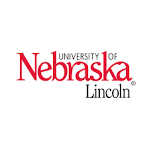
University of Nebraska – Lincoln
- Biomedical Engineering
- College of Engineering
- Nebraska 4-H Extension

University of Nebraska – Omaha
- Office of STEM Education
- NE STEM 4U
Research: STEM
Afterschool: Middle School and Science, Technology, Engineering and Math (STEM)(2010).
MetLife Foundation Afterschool Alert; Afterschool Alliance, Issue Brief No. 44.
S.T.E.M. Initiatives. Research Brief David Anderson, Principals’ Partnership. (2010). This research brief answers the questions: What are the characteristics of exemplary STEM initiatives? What are some exemplary STEM initiatives?
What Afterschool STEM Does Best: How Stakeholders Describe Youth Learning Outcomes. (2013). Krishnamurthi, Began, Rinehart, Coulon. Afterschool Matters.
Research: Wearable Technology
Nugent, G., Barker, B., Grandgenett, N. (2015). Robotics camps, clubs, and competitions: Results from a US robotics project. Robotics and Autonomous Systems Journal. doi:10.1016/j.robot.2015.07.011
Nugent, G., Barker, B., Welch, G., Grandgenett, N., Wu, C., & Nelson, C. (2015). A Model of Factors Contributing to STEM Learning and Career Orientation. International Journal of Science Education, (ahead-of-print), 1-22.
Barker, B., Larson, K., & Krehbiel, M. (2014). Bridging Formal and Informal Learning Environments. Journal of Extension, 52(5), 5IAW5.
Barker, B., Nugent, G., & Grandgenett, N. F. (2014). Examining fidelity of program implementation in a STEM-oriented out-of-school setting. International Journal of Technology and Design Education, 24(1), 39-52.
Barker, B., Melander, J., Grandgenett, N., & Nugent, G. (2015, March). Utilizing Wearable Technologies as a Pathway to STEM. In Society for Information Technology & Teacher Education International Conference (Vol. 2015, No. 1, pp. 1782-1788).
Nugent, G., Barker, B., Grandgenett, N. (in press). Wearable Technologies to Promote STEM Learning and Attitudes. Proceedings of the World Conference on E-Learning 2015.
Nugent, G., Barker, B., & Welch, G. (2014, March). A model of STEM learning and career orientation based on social cognitive theory. In Society for Information Technology & Teacher Education International Conference (Vol. 2014, No. 1, pp. 1432-1440).
Nugent, G., Barker, B., Grandgenett, N., & Welch, G. (2014). Robotics camps, clubs, and competitions: Results from a US robotics project. In Proceedings of 4th International Workshop Teaching Robotics, Teaching with Robotics &5th International Conference Robotics in Education Padova (Italy) July (Vol. 18, No. 2014, pp. 11-18).
Barker, B., Melander, J., Grandgenett, N., & Nugent, G. (2015). Utilizing Wearable Technologies as a Pathway to STEM. In Research Highlights in Technology and Teacher Education 2015., Liu, L. & Gibson, D.C. (Ed.), Research Highlights in Technology and Teacher Education 2015. Society for Information Technology & Teacher Education.
Barker, B., Nugent, G., Grandgenett, N., Melander, J., Nelson, C. A., & Leduc-Mills, B. (In Press) Developing an Elementary Engineering Education Program through Problem-Based Wearable Technologies Activities. In Handbook of Research on Wearable and Mobile Technologies in Education. Hershey, PA: Developing an Elementary Engineering Education Program through Problem-Based Wearable Technologies Activities. IGI.
Related Links
-
Click2Science
Click2SciencePD is an interactive, professional development site for trainers, coaches, site directors and frontline staff/volunteers working in out-of-school time programs serving -
Discovery Education: “Connect the Dots Initiative”




